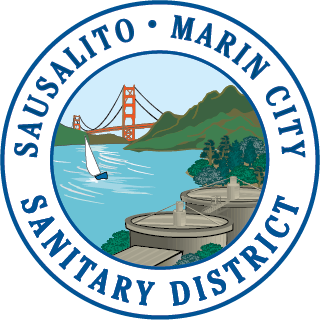- Home
- Customer Info
- Rates and Fees
- How Sewer Service Charges...
How Sewer Service Charges Are Calculated
Residential Sewer Service Charge
The District has conducted extensive engineering and financial studies to ensure that its charges are fair to all customers. Below is a summary of the factors involved in setting residential rates.
Wastewater Flow by Customer Class
Financial and Engineering Studies conducted by the District show the following:
- 64% of total costs are BASE costs that don’t vary with flow. BASE costs are charged equally to all residential customers.
- 36% of total costs are VOLUMETRIC. These costs vary with changes in wastewater flow and are allocat¬ed based on the PROPORTION of flow that has been recently recalculated for residential customers.
As a result, multi-family customers pay 69% as much as single-family homes and floating homes pays 39% as much as single family homes for VOLUMETRIC costs.
Strength Factor
The strength factor for all residential customers remains unchanged at 1.0.
RESIDENTIAL CHARGE = (BASE CHARGE + CLASS VOLUMETRIC CHARGE) x (STRENGTH FACTOR)
Non-Residential Sewer Service Charges
Just like residential, non-residential sewer charges are based on two factors, the quantity of flow and its strength (cost to transport and treat). The proposed sewer service rates for coming years increase by the same amount as single-family residential customers.
Wastewater Flow by Customer
This flow-factor is the ratio of each non-residential customer’s flow compared with 200 gallons per-day treatment capacity made available per EDU.
Strength Factors
The strength is based on wastewater produced by a residential customer.
The Strength Factors Are:
Strength Factor
- Low (Retail & Office – comparable to residential) = 1.0
- Medium (Delis, Markets) = 1.7
- High (Restaurant & Bakeries) = 2.4
COMMERCIAL CHARGE = (RATE ) x (FLOW FACTOR) x (STRENGTH FACTOR)
-
Non-Residential (Commercial) Bills.
The non-residential rate per EDU is the same as single family, but each non-residential customer has its own bill based on its own estimated strength and flow (see the formula on the previous page). The minimum non-residential charge is one EDU.
-
Collection System Supplemental Charge (For Businesses within Unincorporated Areas).
The Supplemental Charge funds the cost of pipeline collection system operations, maintenance and upgrades in unincorporated service areas, floating homes, and Marin-City. The existing sewer collection charge of $78 per EDU per year does not cover the cost of service. It was adjusted to cover actual costs of service and to ensure that the proportion of charges proposed to be paid by each customer class reflects the results of flow studies that were recently recalculated.
Collection System Charge (Businesses Within the City). This charge, similar to the Supplemental Charge above, is for sewer collection system maintenance and repairs in the city. Contact the city for details about this charge.

